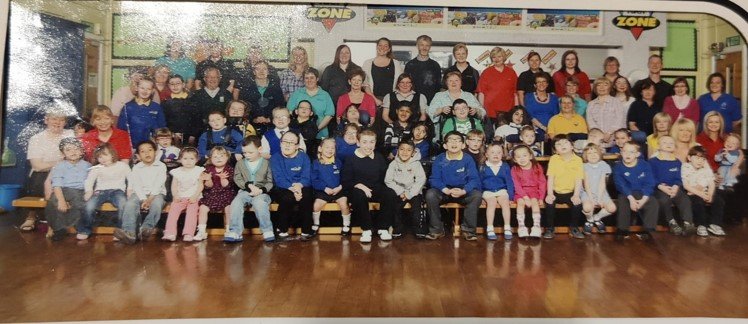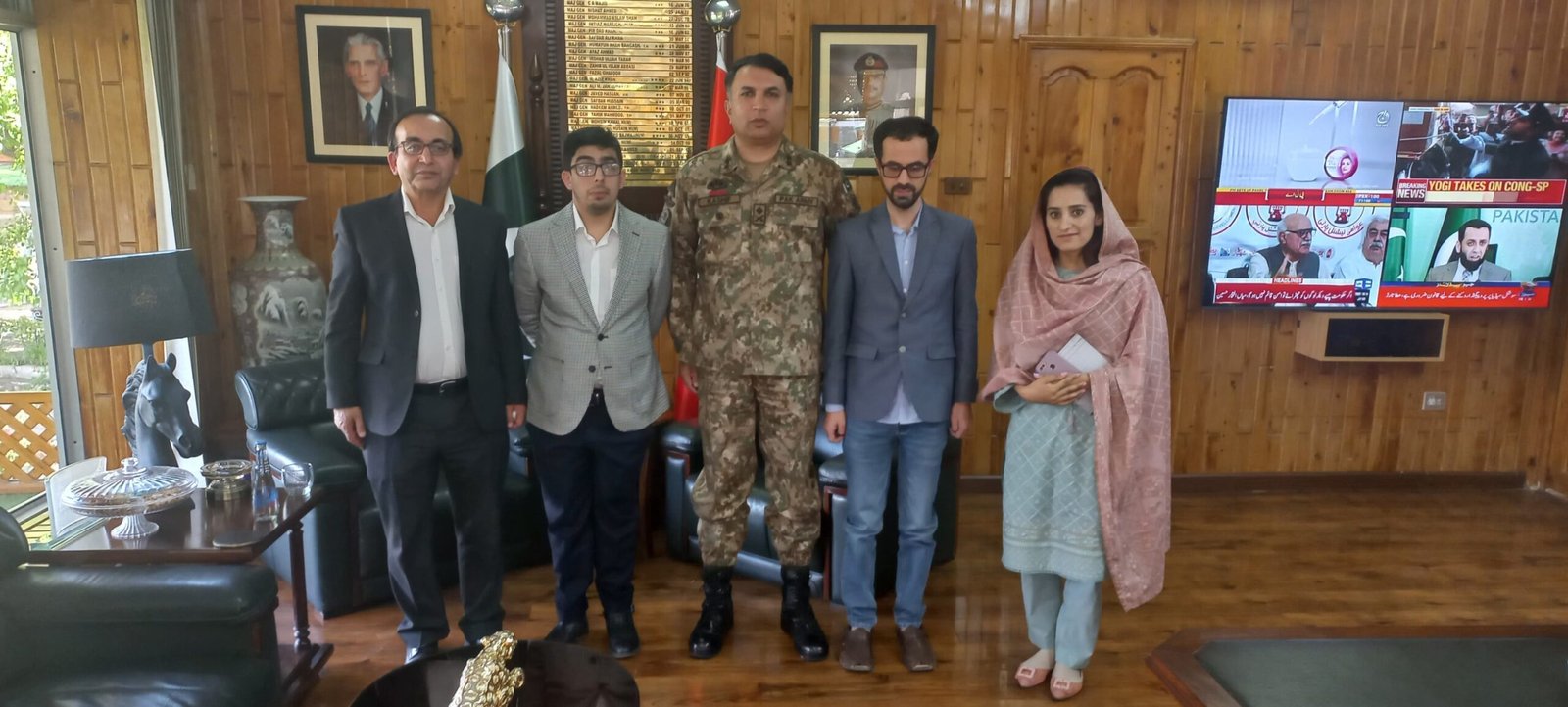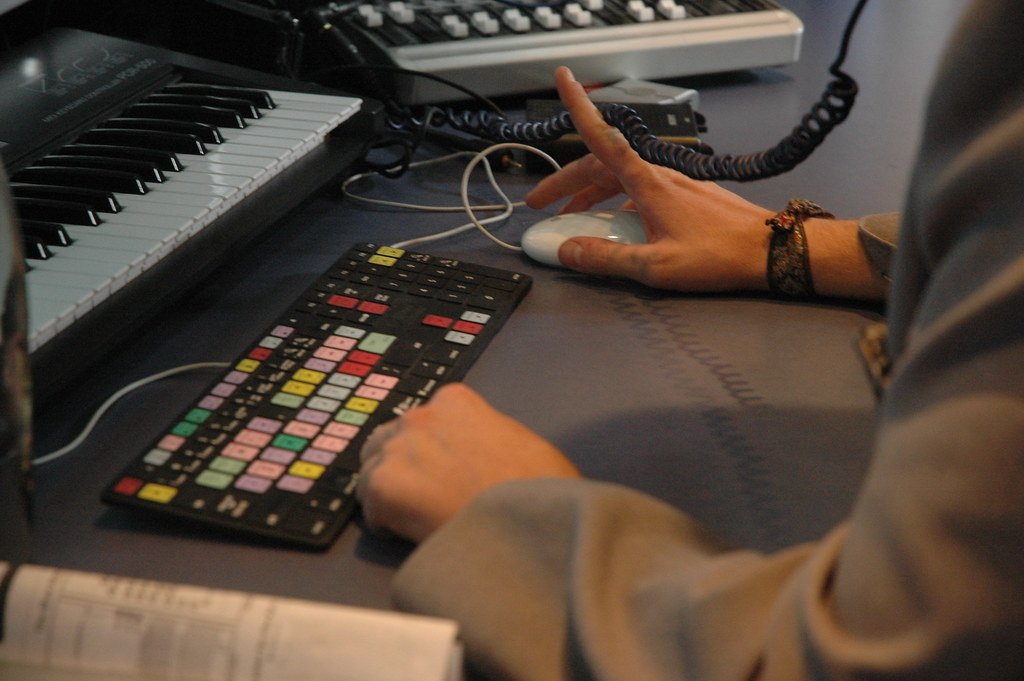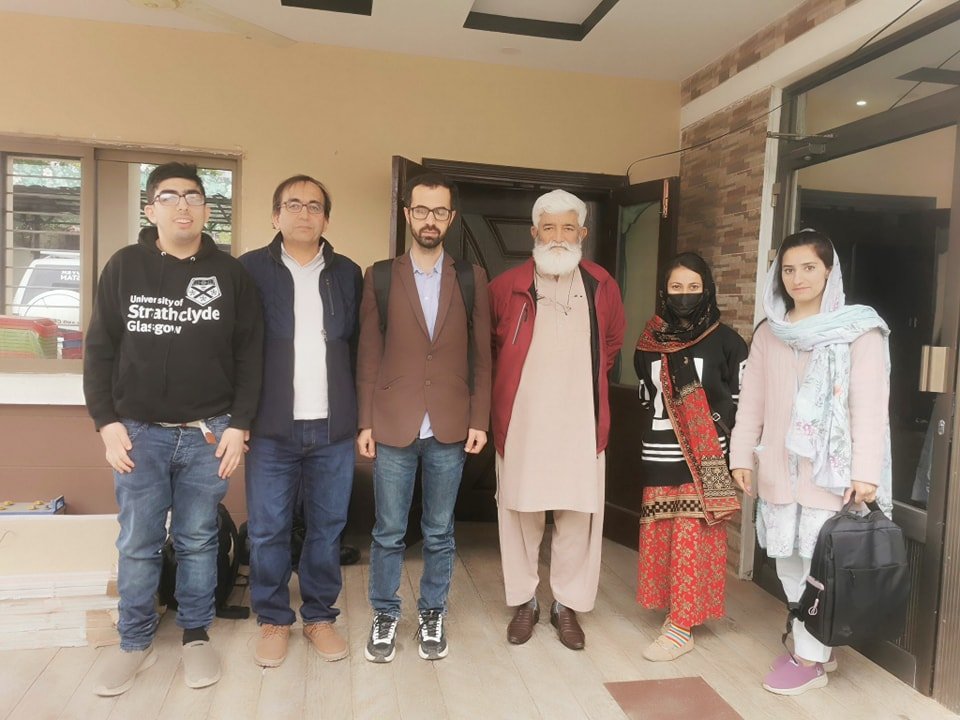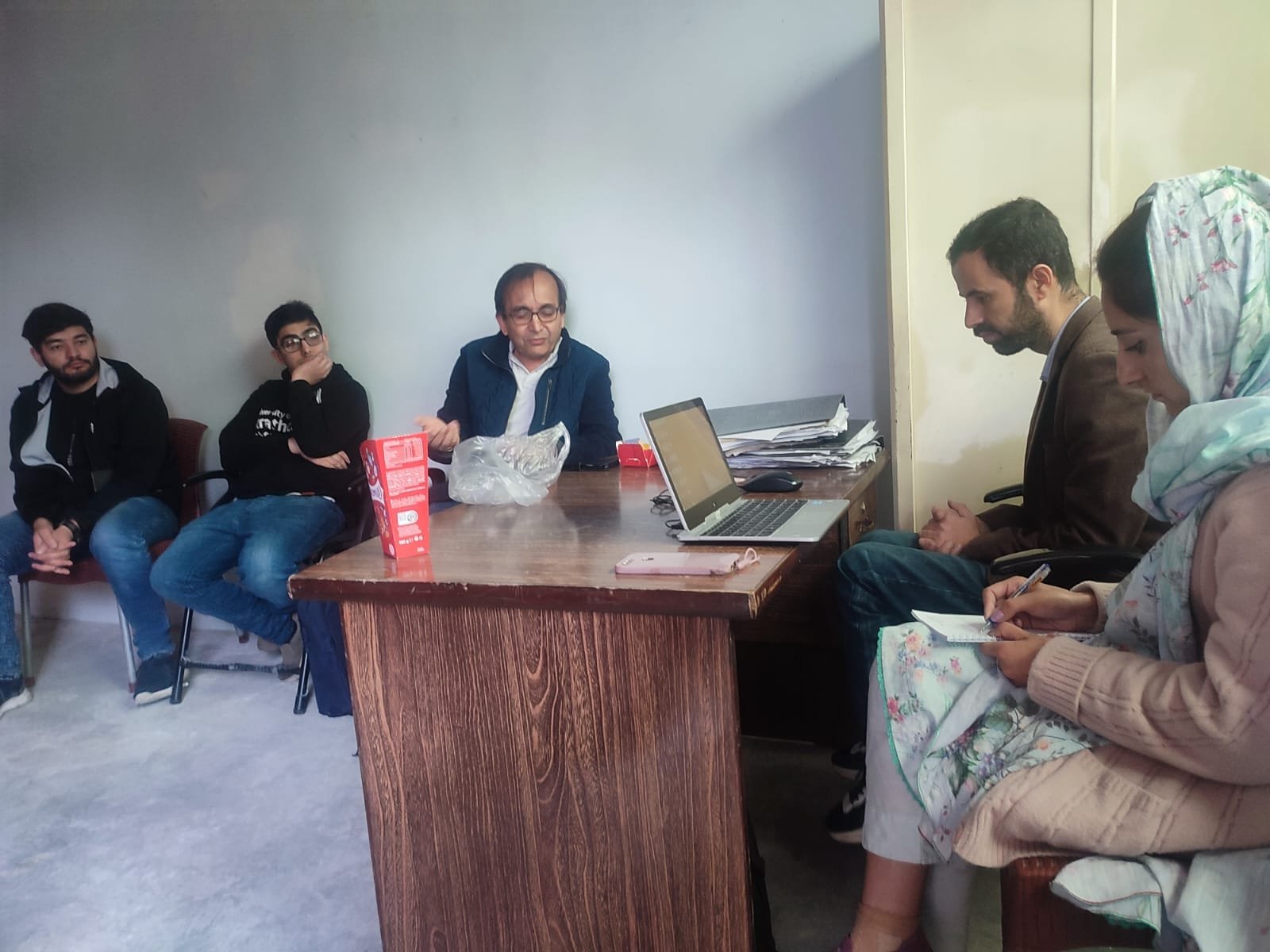Stories of the Resilient – Ghulam Muhammad Baig
My profile
Allow me to introduce myself. I am Ghulam Muhammad Baig, a soon-to-be graduate of Politics and International Relations at Strathclyde University in Glasgow, UK. In today’s world, I am deeply passionate about the active involvement of young people in social work. As a person with a disability, I understand firsthand how our experiences can shape the world we live in.
As an immigrant from Pakistan, I’ve had the opportunity to experience education in both the UK and my home country. This journey has not only broadened my horizons but also highlighted the common challenges faced by individuals with disabilities in both nations.
Moreover, during those years, my educational experiences were even divided between Additional Support Needs Schools (special schools) and mainstream education.
A mind boggle
have used this heading because explaining how I was educated is complex in itself. I will try to express it without using complex terms or lengthy discussions. In Additional Support Needs Schools, students often aren’t challenged to their full potential, which is unfortunate. However, these schools do offer great facilities, including:
- One-on-one care from a support assistant for each disabled student
- Smaller classrooms
- Bus support
- Speech therapy/Occupational therapy
- Physical therapy
- Support for free school meals
- Personal guidance
Reflecting on it, I realize that the concept of specialized schools for the disabled can feel uncomfortably close to segregation. It seems as though society is saying it doesn’t want to address their needs, so it isolates them into separate units.
I am not saying that is wrong; I am just saying that it limits or generalizes every disabled individual to not be of a sane mind. Having said that, multiple disablities, such as autism, and other physical disablities, such as ceberal palsy, which I have a mild form of benefit from it.
If it were not for my teachers like Ms Patterson and Robyn at the City of Glasgow College, I would not have become the student I am today.
How did this help me in focusing on charity work?
As I grew older, now at the age of 24, I began to understand that in third-world countries like Pakistan, especially in regions such as Gilgit Baltistan, issues like mine might not be openly discussed or addressed. These regions often face significant challenges, including limited resources, lack of awareness, and cultural stigmas, which can hinder open conversations and effective action on such matters.
Despite this, I held onto a glimmer of hope that progress could be made in Gilgit Baltistan, particularly because of the presence of organizations like the Aga Khan Development Network (AKDN). The AKDN has a strong reputation for its work in health, education, and community development, and its initiatives have brought about positive change in many underserved areas. I hoped that their efforts might extend to addressing issues like mine, raising awareness, and providing support and resources to those in need.
However, such changes take time and require a concerted effort from multiple stakeholders, including local communities, government bodies, and international organizations. While the presence of organizations like the AKDN is a promising start, there is still a long way to go to ensure that these issues are brought to the forefront and adequately addressed in regions like Gilgit Baltistan.
Situation on ground
Despite Gilgit Baltistan being one of the highest-educated regions of Pakistan, the disabled community suffers significantly, reflecting the shortcomings of the government.
- The Government has not socialized disabled people into mainstream education,
- established ASN schools for secondary or college levels,
- implemented a social care system,
- or enforced laws even when they are passed.
- Additionally, less than 1% of disabled people have secure jobs,
- The joint family system presents further challenges for disabled individuals.
Where does the GBGM come into this
My organization, Gilgit Baltistan’s Goodwill Movement, is a disabled-led organization. GBGM was started as a social media forum in 2019. During the COVID-19 pandemic, I learned that the disabled community in Gilgit Baltistan was in extreme difficulties with no basic facilities; he made a resolution for his lifelong commitment to work for the disabled or differently abled Community of Gilgit Baltistan.
Remaining proactive on social media during the first year of the pandemic, when educational institutions were closed, I found a large team of volunteers among whom there were prominent disabled activists of Gilgit Baltistan, including Sehrish Kanwal, Farhan Baig, Abrar Ahmed, Mumtaz Ali, Abdul Hakeem, Mustafa Kamal, Najeeba and Khushan Bano and Ali Ahmed.
Together we work to
- raise public awareness about the situation of persons with disabilities in Gilgit Baltistan, –
- to collect a credible and authentic database about PWDs in Gilgit in terms of total numbers and various types of disabilities,
- to provide support in various forms to the disabled/differently-abled community and give them a voice in Gilgit Baltistan,
- to establish centers for skills development of persons with different types of disabilities,
- to create a platform for the volunteering youth of Gilgit Baltistan to speak about and work for the differently abled community,
- promote our ideas and ideals about disability inclusion in Gilgit Baltistan to the public,
- and work with relevant authorities to address disability inclusion within Gilgit Baltistan and uplift the educational and employability status of disabled persons.
In May 2022, we initiated a training center dedicated to developing the skills of persons with disabilities within Gilgit City.
This center aims to provide comprehensive training programs tailored to the unique needs and abilities of each participant, ensuring they receive the necessary support and resources to enhance their skills and improve their employability.
By offering a variety of courses and workshops, the center strives to empower individuals with disabilities, enabling them to achieve greater independence and actively contribute to the community. Our goal is to create an inclusive environment where all participants can learn, grow, and thrive.
What are the different workshops on offer
Thus far, our training center has successfully equipped individuals with a diverse range of skills essential for personal and professional growth. Among the courses offered, participants have undergone intensive training in IT skills, mastering essential computer applications and programming languages to enhance their technological proficiency. Additionally, individuals have been trained in the production of LED bulbs, enabling them to acquire valuable knowledge and practical experience in sustainable energy solutions.
Furthermore, our center has fostered a vibrant musical community, providing participants with opportunities to explore their creativity and develop their musical talents. Alongside these technical skills, participants have also engaged in courses focused on various life skills, including campus living. These sessions have empowered individuals with the necessary tools and knowledge to navigate everyday challenges, fostering independence and self-reliance.
Through our holistic approach to skill development, we are dedicated to empowering individuals with disabilities to reach their full potential and thrive in both personal and professional spheres.
Thats great, but are women invloved?
Despite our efforts to create an inclusive environment, we have encountered challenges in engaging disabled women in our training programs. Several factors contribute to this disparity:
- Accessibility Barriers: Many training facilities lack adequate accommodations for individuals with disabilities, particularly women. Physical barriers such as inaccessible entrances, narrow doorways, and lack of wheelchair ramps make it difficult for disabled women to access our training center.
- Transportation Constraints: Limited accessible transportation options pose a significant barrier for disabled women, making it challenging for them to commute to our training center. Lack of accessible public transportation and specialized transport services further exacerbate this issue.
- Cultural and Societal Stigma: Cultural norms and societal attitudes towards disability often marginalize women with disabilities, leading to social isolation and exclusion. Discriminatory practices and stereotypes may discourage disabled women from participating in training programs due to fear of judgment or mistreatment.
- Caregiving Responsibilities: Disabled women may face additional caregiving responsibilities, such as caring for children or elderly family members, which can impact their ability to attend training sessions regularly. Limited access to affordable childcare or support services further hinders their participation in our programs.
- Financial Constraints: Economic barriers, including limited financial resources and lack of access to financial assistance programs, may prevent disabled women from enrolling in our training programs. High tuition fees, transportation costs, and expenses related to disability accommodations pose significant financial burdens for many disabled women.
Despite these challenges, we remain committed to addressing the barriers faced by disabled women and creating a more inclusive environment.
By actively addressing accessibility issues, advocating for policy changes, and providing tailored support services, we aim to empower disabled women to participate fully in our training programs and realize their potential.
Where can I find out more about your work?
Community leadership stems from the top
To understand what it means to be able or disabled, it’s essential to delve into the definitions and societal implications of these terms. Here’s a comprehensive exploration of the concepts:
Definitions and Societal Implications
Able-bodied: This term refers to individuals who do not have significant physical or mental impairments affecting their daily activities. Able-bodied individuals can typically perform tasks and engage in activities without needing special accommodations or assistance.
Disabled: Being disabled refers to individuals who have physical, mental, or sensory impairments that significantly affect their ability to perform everyday tasks. Disabilities can be visible (such as mobility impairments requiring a wheelchair) or invisible (such as cognitive impairments affecting memory or learning). The concept of disability is not solely about the impairment but also about how society structures its environment and systems, often in ways that do not accommodate people with diverse abilities.
Differentiating Between Able and Disabled
Traditional Perspective: Traditionally, the distinction between able and disabled is based on the presence or absence of impairments that affect a person’s functioning. However, this binary perspective can be limiting.
Modern Understanding: Modern understanding emphasizes a spectrum of abilities and disabilities, recognizing that everyone experiences some form of limitation at different points in their lives. For example, an able-bodied person might temporarily be disabled due to an injury, illness, or aging.
Social Model of Disability: This model argues that disability arises not from the impairment itself but from societal barriers and attitudes. For instance, a person who uses a wheelchair is only ‘disabled’ in environments that lack ramps and elevators. This perspective shifts the focus from the individual’s limitations to the need for societal change and inclusivity.
Able People Experiencing Disability
Even able-bodied individuals can experience limitations akin to those faced by people traditionally labeled as disabled:
Temporary Disabilities: Injury, illness, or aging can result in temporary disabilities. For instance, a broken leg might require someone to use crutches, temporarily limiting their mobility.
Psychological or Emotional Challenges: Able-bodied individuals might face psychological or emotional challenges that impair their functioning in certain contexts, such as anxiety or depression affecting their ability to work or socialize.
Situational Impairments: An able-bodied person might feel ‘disabled’ when traveling to a country where they do not speak the language, facing communication and navigation barriers.
Bridging the Gap
Closing the gap between able-bodied and disabled individuals involves several key strategies:
Community Leadership: Empowering community leadership to take initiative is crucial. Strong community leaders can promote inclusion for persons with disabilities by fostering environments that support diverse needs. This leadership can be within any type of community, not just religious but also social and physical communities.
Inclusion and Accessibility: Creating inclusive environments that accommodate diverse abilities is essential. This can involve:
- Infrastructure: Ensuring public spaces are accessible to all, such as ramps and elevators for mobility impairments.
- Policy: Implementing policies that promote equal opportunities for people with disabilities, such as inclusive hiring practices and anti-discrimination laws.
- Education: Raising awareness and educating the public about disability issues to reduce stigma and promote understanding.
Empowerment Through Inspiration
The poetry of Allama Iqbal serves as an inspirational call to action: “May the darkness of this world disappear through this life of mine. May every place light up with the sparkling light of mine.” These lines underscore the potential for each individual to contribute positively to society and bring about change, highlighting the importance of individual and collective efforts in promoting inclusivity.
Conclusion
Understanding and addressing the distinctions between able and disabled requires a holistic and inclusive approach. By shifting from a binary perspective to one that recognizes a spectrum of abilities, society can better support and value the diverse experiences of all individuals. Empowering community leadership, creating inclusive environments, and fostering understanding are key steps in bridging the gap and promoting a society that values the contributions of everyone, regardless of their physical or mental capabilities.
Top things not to say to a disabled person
Many disabled people are often overlooked, not because of their abilities, but due to judgments based on their voice, facial expressions, or body weight.
Phone calls
I’ve had my fair share of phone calls in which I’ve been referred to as a “dark horse.” This label often stems from the fact that people underestimate disabled people, only fully recognizing their potential or abilities once they see the results of my work. Disabled people do need your help, and it’s not often Rajiv from India or Prince of Nigeria. Often, people do not realise the opportunities they lose because they pre-judge someone.
Solution
Engage in a conversation with them. A disabled person might not be going out of their way to accommodate you because they want to feel normal. Instead, ask for their email address or suggest another solution. You could also ask them to turn on closed captioning, which can be helpful without causing offense.
Do not judge them by their weight or appearance.
It may be the case that some people have health issues requiring sufficient sugar intake. For instance, we had a case in Ghizer where we observed individuals who were malnourished but needed high sugar levels. This condition, known as hypoglycemia, causes low blood sugar and necessitates regular intake of sugar to maintain health.
Do not give them the I will do it later excuse
Most people often resort to the excuse of “I will do it later.” We’ve encountered numerous cases where individuals claim to support disabled people but then use this excuse to delay or avoid taking action. This behavior indicates a lack of genuine commitment and can be seen as a form of neglect or abuse behind their backs. By consistently postponing help or support, these individuals fail to acknowledge the immediate needs of disabled people, effectively undermining their well-being and showing a disregard for their circumstances.
This pattern of behavior not only erodes trust but also perpetuates the challenges faced by disabled individuals who rely on timely assistance and support.
Solution
write a nice email to a disabled person, explaining your own circumstances. I wanted to reach out and share a bit about my own circumstances and to understand yours better. Recently, I have been reflecting on the importance of clear and respectful communication, especially when it comes to understanding each other’s unique needs and challenges. That way the disabled person knows you are on their to do list, and will approach them in the future if needs be.
Conclusion
In conclusion, it’s crucial to approach conversations with disabled individuals with sensitivity and respect. Avoid making assumptions about their abilities, and refrain from saying things that may come across as dismissive or patronizing. Phrases like “You don’t look disabled” or “You’re so brave” can be harmful, even if well-intentioned. Instead, focus on listening, understanding, and treating them with the same dignity and respect you would offer anyone else. By being mindful of our words, we can create a more inclusive and supportive environment for everyone.
Meeting with Force Commander Northern Areas
His Excellency Major General Kashif Khalil, Force Commander Northern Areas, recently held a round table discussion with the team from the Gilgit Baltistan Goodwill Movement, focusing on the pressing issues faced by persons with disabilities in the region. The meeting aimed to foster a collaborative environment where stakeholders could openly discuss challenges and strategize potential solutions to improve the quality of life for disabled individuals in Gilgit Baltistan.
During the discussion, the Force Commander expressed his commitment to addressing the unique needs and concerns of the disabled community. He emphasized the importance of inclusivity and the need for comprehensive policies that ensure equal opportunities for all citizens, regardless of their physical or mental abilities.
The Gilgit Baltistan Goodwill Movement team highlighted several key issues, including the lack of accessible infrastructure, limited healthcare services, and the need for better educational and employment opportunities for persons with disabilities. They also discussed the social stigmas that often hinder the full participation of disabled individuals in society.
In response, the Force Commander assured the team of his support in advocating for policy changes and resource allocation to address these issues.
The round table discussion concluded with a renewed commitment from all parties to work together towards creating a more inclusive and supportive environment for persons with disabilities in Gilgit Baltistan.
The Force Commander’s proactive engagement and the collaborative efforts of the Gilgit Baltistan Goodwill Movement set a promising foundation for future initiatives aimed at empowering the disabled community.
His leadership and dedication to this cause highlight the crucial role of the Force Commander in promoting social welfare and development in the Northern Areas.
Relations with the Chief Secretary
The Team Goodwill Movement extends its heartfelt gratitude to Chief Secretary Gilgit Baltistan for graciously hosting us. We are deeply appreciative of the warm hospitality and support extended to our team during our time in Gilgit Baltistan.
Several key issues were addressed, with accessibility emerging as a central theme. We engaged in productive conversations regarding the importance of ensuring equal access to essential services, education, and opportunities for all members of society, particularly those in remote or marginalized areas. We emphasized the need for proactive measures to enhance accessibility, including the development of infrastructure, transportation systems, and technological solutions that cater to diverse needs.
Moreover, we explored strategies to promote inclusivity and empower individuals with disabilities, recognizing their valuable contributions to society. By advocating for inclusive policies and implementing inclusive practices, we aim to create a more accessible and inclusive environment that enables everyone to participate fully in social, economic, and cultural life.
Meeting with Col Wali of the Moawin Foundation
On the second day in office, we were privileged to engage in a profound meeting with Colonel Wali, the esteemed regional head of the Moawin Foundation. The foundation’s noble mission to “Transform Lives through Education & Skill Development” resonated deeply with our own aspirations within the Gilgit Baltistan’s Goodwill Movement. As we sat down to deliberate, it became abundantly clear that a partnership between our two entities held immense potential to catalyze positive change and empower communities.
Colonel Wali articulated the Foundation’s commitment to providing access to quality education and fostering skill development among marginalized populations. Their initiatives ranged from establishing schools in remote areas to vocational training programs aimed at equipping individuals with the tools they need to thrive in today’s competitive landscape.
In turn, we shared our vision for the Gilgit Baltistan’s Goodwill Movement, emphasizing our dedication to grassroots empowerment and sustainable development. Our focus on community-driven solutions and inclusive growth aligned seamlessly with the ethos of the Moawin Foundation.
Throughout our discussion, ideas flowed freely, sparking innovative strategies for collaboration. We explored potential joint ventures, such as establishing educational centers in underserved regions of Gilgit Baltistan or launching joint skill development workshops tailored to the specific needs of local communities.
Furthermore, we identified areas where our respective strengths could complement each other, whether through sharing resources, expertise, or networks. By pooling our resources and leveraging our collective experience, we envisioned creating a synergy that would magnify our impact and reach even the most marginalized individuals.
As the meeting drew to a close, both parties expressed excitement about the possibilities that lay ahead.
We recognized that this partnership was not just about transforming individual lives but about igniting a ripple effect of positive change across entire communities.
With shared determination and a commitment to collaboration, we departed, eager to embark on this journey together towards a brighter, more inclusive future for all
Visiting Gilgit for a cause
Every year, I visit Gilgit for the cause of disabled persons within the region. I visit it not only because of personal reasons but to serve the NGO free of cost. This time in April, I visited Gilgit to see how we can further amplify the Goodwill message in government and private sector offices.
Pay us through Payoneer
We extend our heartfelt gratitude to each and every donor who generously contributed to our Ramadan fundraiser. Your support has been invaluable in helping us make a meaningful impact in our community during this blessed month. Through your kindness and generosity, we have been able to provide essential assistance to those in need, ensuring that they have the resources and support necessary to observe Ramadan with dignity and peace. Your contributions have truly made a difference, and we are deeply thankful for your continued support and generosity. May your generosity be rewarded manifold, and may the blessings of Ramadan be upon you and your loved ones.
Acknowledging feedback and considering recommendations is a crucial aspect of growth and improvement. We appreciate the valuable suggestions provided and are committed to incorporating them into our future endeavors. Your insights help us refine our approach, ensuring that we can better serve our community and maximize the impact of our initiatives. Rest assured, your feedback is highly valued, and we are dedicated to continuous improvement to better meet the needs of those we serve. Thank you for your thoughtful input, and we look forward to implementing these recommendations to enhance our efforts in the future.
Our first step towards ensuring that more donors are able to donate is that we have created a Payoneer account which works within Pakistan and the United States, and the UK.
Please see the Payoneer details below for the UAE, Canada, UK, EU, Japan and the US
UAE
Bank name:
Standard Chartered
Bank address:
Standard Chartered Tower, Emaar Square Dubai, United Arab Emirates
SWIFT code:
SCBLAEADXXX
IBAN:
AE720446420010001343782
Beneficiary name:
GHULAM Muhammad BAIG
Canada
Bank name:
Citibank NA Canadian Branch
Bank address:
123 Front St. West Toronto, ON M5J 2M3
Institution number:
0328
Transit number:
20012
Account type:
CHECKING
Account number:
3001410372
Beneficiary name:
GHULAM Muhammad BAIG
UK
Bank name:
Barclays
Sort code:
231486
Account number:
15266357
Beneficiary name:
GHULAM Muhammad BAIG
Japan
Bank name:
MUFG Bank, Ltd.
Bank address:
7-1 Marunouchi 2-Chome, Chiyoda-ku Tokyo, Japan
Bank code:
0005
Branch code:
869
Account type:
Savings / Futsu
Account number:
3746156
Beneficiary name:
ペイオニア ジヤパン(カ
USA
Bank name:
Citibank
Bank address:
111 Wall Street New York, NY 10043 USA
Routing (ABA):
031100209
SWIFT code:
CITIUS33
Account number:
70587070000958966
Account type:
CHECKING
Beneficiary name:
GHULAM Muhammad BAIG
Eid 2024
As Eid 2024 draws near, the GB Goodwill Movement is filled with gratitude and appreciation for the generosity of our cherished donors. With heartfelt thanks, we extend our deepest gratitude to our existing donors, whose steadfast support has been the cornerstone of our mission’s success. Your unwavering commitment has enabled us to make a meaningful impact and bring hope to those in need.
We also extend a warm welcome to our new donors, whose commitment to our cause strengthens our resolve and broadens our reach. Your support, especially during this auspicious time, exemplifies the spirit of compassion and unity that defines our organization.
In light of Eid festives, we request that all remaining donors who wish to donate, please do it as soon as possbile so that we could reach as many disabled people, in helping them with food, clothing, shelter and future training of skills development
As we immerse ourselves in the joyous festivities of Eid, we humbly appeal to our remaining donors to consider extending their generosity as soon as possible. Your timely contributions are invaluable in enabling us to reach out to as many individuals with disabilities as possible, providing them with essential necessities such as food, clothing, and shelter, as well as empowering them through future skills development training.
Every donation, regardless of size, plays a significant role in making a positive difference in the lives of those in need. By acting swiftly, we can ensure that our efforts are maximized, and the impact is felt by those who require our assistance the most.
Your support is not only a reflection of your compassion but also a beacon of hope for those who are facing challenges. Together, let us continue to spread kindness and uplift the spirits of our fellow human beings, especially during this time of celebration and reflection.]
For donations in Pakistan click here.
For other donations click here
Thank you and we hope that you have a happy and Joyous Eid Period

